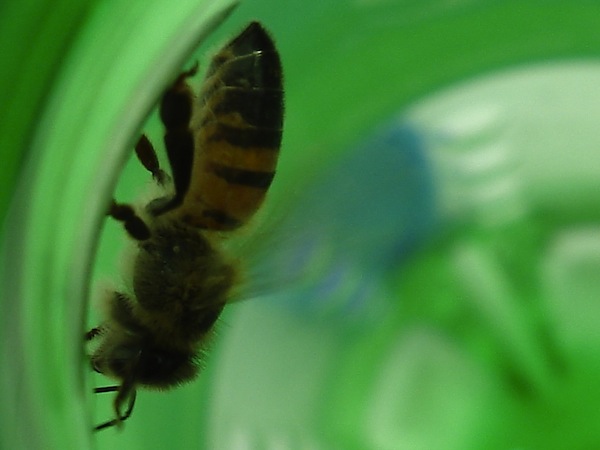We are Bees in a Bottle
Bees are amazing creatures. It is delightful to see worker bees flying from flower to flower as they collect nectar to produce honey. On the other hand, it is very sad to find a honeybee trapped inside a soda bottle. Attracted by the high concentration of sugar, the bee gets into the bottle and then, unable to find its way out, slowly perishes.
This grim scene accurately illustrates the way modern society has evolved. For multiple decades we have blindly embraced a model of “development,” which exalts unlimited economic growth whilst disregarding environmental protection and social justice. The false promises of unrestrained economic development have lured society into a dire situation just like the sugar does to the bee. The combination of ever increasing ecological social and political problems caused by this model form the soda bottle in which we are all trapped.
Unlike the bee, however, we have recognized the gravity of our situation. Through the process started with the establishment of the Brundtland Commission in the 1980s modern society has acknowledged the urgent need to adopt a different development paradigm. As a result the principles of sustainable development are now well known and countless policies and procedures have been introduced to promote them in every sector of society. Yet environmental and social indicators suggest that the negative effects of our current economic model continue to intensify. In other words we are still trapped inside the bottle.
We cannot break free because our escape plans are analogous to the bee trying to smash through the bottom of the bottle, whilst ignoring the open “mouth” of the bottle – its natural exit. For instance, vast resources are allocated for the development of electric cars and to the expansion of capital-intensive public transport systems. Meanwhile, less expensive solutions like improving the quality of public transportation or embracing more innovative approaches to reduce long distance commuting are ignored. Likewise, extensive resources are used to deploy inefficient technologies to generate electricity, whilst strategies to reduce the consumption of energy remain largely inadequate. Essentially, society is fixated on ineffective methods that try to forcibly make everything “green” or “sustainable,” whilst neglecting the need to properly educate people about sustainability.
We need to think outside the box to get out of the bottle. The identification and dissemination of new approaches is paramount to the success of sustainable development. However, only when we stop paying so much attention to the sugar inside the bottle, will we be able to appreciate the abundant nectar that is outside.


